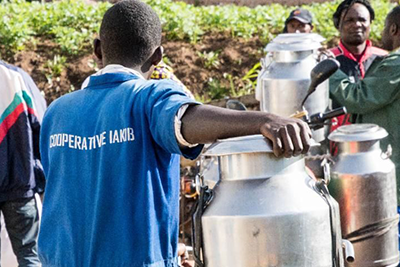
In honor of National Co-op Month—an annual opportunity to raise awareness of the cooperative business model—the U.S. Agency for International Development (USAID)’s Office of Local Sustainability is spotlighting its work with cooperatives around the world.
As the COVID-19 pandemic continues to disrupt businesses and supply chains around the world, understanding the impact on specific sectors is critical.
That’s why U.S.-based cooperative development organizations Equal Exchange, Global Communities, NCBA CLUSA and Land O’Lakes Venture37 decided to study agricultural cooperatives in eight countries. Their research found that government restrictions on mobility and decreased consumer spending had profound effects on cooperative businesses, including operational delays and reduced revenue.
Individual cooperative members have also seen a decline in their household income and food security due to market disruptions. In Rwanda, for instance, the price of maize dropped by 33 percent. One cooperative member noted that this drastic change reduced his family’s income, impacted their food security and caused him to default on his bank loan.
The findings weren’t all bad, however: high levels of social capital between cooperative leaders and members enabled these businesses to be a trusted source of information and services. Health and safety guidance and small loans are just a few of the ways cooperatives have minimized the impact of pandemic-related stressors for cooperative members and contributed to their ability to overcome these challenges.
To learn more, read the full study, or check out this interview with Land O’Lakes Venture37’s Chief of Party Kari Onyancha.


